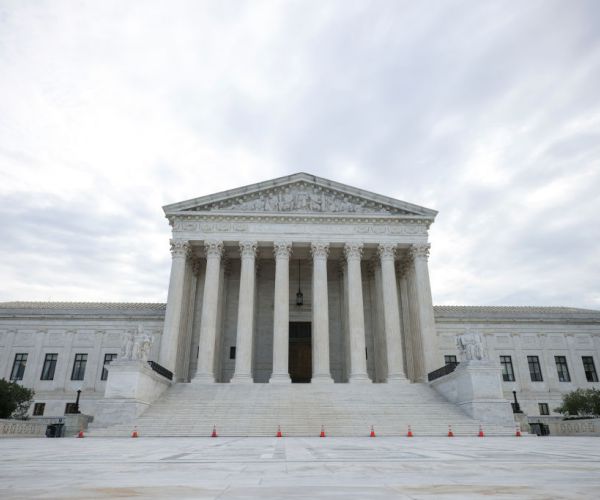With the opening of the new Supreme Court term on Monday, Justice Clarence Thomas gave an indication that he will continue to actively take part in oral arguments by asking the first question of the session, even though the court is returning to a system from which he has previously shied away, Fox News reported.
The court has resumed in-person oral arguments after working remotely last year due to the coronavirus pandemic. As a result of the arrangement, the court began asking questions in descending order of seniority, a system in which Thomas took part.
Before the pandemic, justices interrupted counsel with a barrage of rapid-fire questions in no set order. Thomas rarely spoke in this format, as he made clear his disapproval of that system.
This session the court has adopted a new hybrid argument arrangement, which begins with an extended period of rapid-fire questioning followed by a more orderly opportunity for questioning by each justice at the end.
Thomas, however, did not wait for his preferred system of orderly questioning and jumped right in with the first question in the rapid-fire portion.
Former Thomas clerk and Judicial Crisis Network President Carrie Severino, citing the new 6-3 conservative majority, attributed Thomas’ assertive nature as the justice’s “moment as the intellectual leader of the Court and thus fitting to hear him ask the first question of the new term.”
The first case the Supreme Court heard this term is a dispute over ground water between Tennessee and Mississippi, with the latter state alleging that Tennessee is taking more than its share of ground water by pumping too much from a shared aquifer.
Thomas’ first question to the lawyer from Mississippi was, “Counsel, you seem to complain about Tennessee pumping water from Mississippi, but you admit that Tennessee does not enter across the border into Mississippi, isn’t that correct?”
He then peppered the Mississippi lawyer with several more tough questions after his first one, including “Let’s say it was a lake and Tennessee was pumping water on its side of the lake. Couldn’t you argue that technically it was drawing water from Mississippi,” under Mississippi’s logic. “Couldn’t Tennessee, Arkansas, Missouri make the same argument that whenever you pump you’re causing similar problems for them?”




